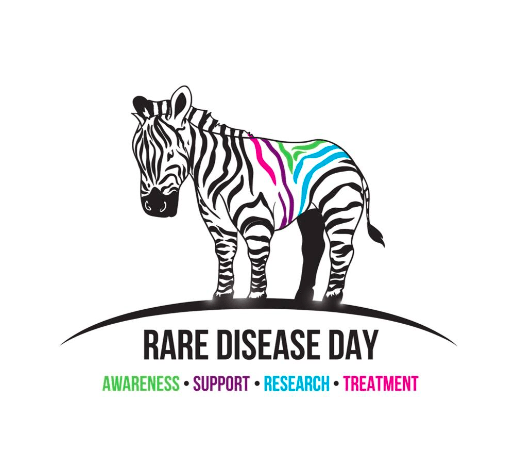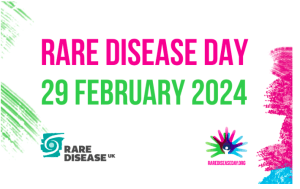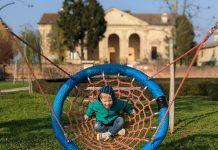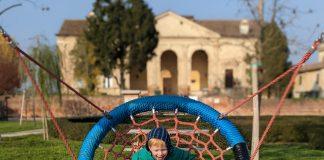Happy Rare Disease Day! Rare Disease Day celebrates the 300 million people worldwide who are living with a rare disease. There are over 6000 rare diseases that are characterized by a multitude of abnormalities and symptoms that not only vary from disease to disease, but even from patient to patient battling the same disease diagnosis. There is simply not enough data on many of these diseases due issues such as sample size (a living number of people currently documented and being treated for a specific disease) and accessibility to treatments available. Rare Disease Day is celebrated on the last day of February, and the mascot is a zebra. We often use the phrase “show your stripes!” to raise support and awareness for the people and their caregivers in the Rare Disease Community.
I want to open on a scene very familiar to many of us in the Rare community: we traveled home to spend time with family only for our Rare child to become sick. For most of the week, our extended family had front row seats to the normal interventions, phone calls, trips to and from the hospital, and the endless scenarios that having a Rare child comes with. For what seems like the 1000th time, I answered questions like: “there is no miracle surgery… yes, they will have this disease forever… they may have to have surgery soon… this will cause complications as they get older…” The conversation organically shifted to another topic, as I watched my spouse retreat to the corner of the room. I noticed tears well up in their eyes, trying to bring as little attention to themselves as possible. Quietly (and undetected by others in the room) I made my way over to check on my spouse. Without any prompting from me, they said: “It’s like they don’t know anything about our family.”
With permission to share anonymously from Rare families within the military community, these are the things we want you to know about having a Rare child:
The benefits of active duty are exactly why we can’t leave the military.
Don’t get me wrong, Tricare leaves a lot left to be desired. As the military seeks to increase primary care and specialists back into Military Treatment Facilities, specialists (especially pediatric specialists) are in high demand and with long wait times. Calls get dropped, you can never get to the same representative to follow up on your case number, and your paperwork magically “gets lost” at least 3 times on the way to the correct office. The time researching the appropriate specialists, resourcing medical supplies (that sometimes are not covered by insurance), school accommodations, and therapists at current and future duty stations is comparable to a full time job. The cost of time itself adds up.
Even with these constant advocation for services and fights with Tricare, these benefits give our family the stability and resources we may not have on the civilian side. For families of Rare children: the cost of benefits still outweighs the constant moving, solo parenting, and oftentimes lack of a local and family support systems. We can’t leave active duty, even if we wanted to, for the sake of our Rare child.
Our child’s rare disease does affect the service member’s career, regardless of what policies say.
The Exceptional Family Member Program (EFMP) has safeguards in place to make sure that dependents of service members are assigned at duty locations where their Rare child can receive appropriate care. This can be something as simple as physical therapy, or complex like a high demand specialist or surgeon. Having a Rare child often means there is a limit on duty locations for the service member because specialized services are never equally sprinkled across the world. If the service member has a specialized branch or MOS that requires a specific duty station, lack of appropriate care can affect the service member’s ability to be promoted within a competitive or even adequate amount of time. Junior enlisted families are at a higher risk of this than senior leadership.
The other career risk that military families with Rare children face is unfortunately unpredictable: while a Rare child is receiving services at a specific duty station, if an essential specialist on their care team leaves or moves, the family must be reassigned to a different location. This is part of the Compassionate or Humanitarian Reassignment Program. Although a Humanitarian/Compassionate Reassignment ensures appropriate care for the Rare child, it does not guarantee stability for the family or the service member’s career. It not only uproots a family well before they anticipated, but the reassignment puts the service member at risk of not being promoted with their peers. This is due to the adjustment to a new work environment and establishing rapport with their new senior raters.
I am the primary (and often sole) caregiver for my Rare child, it is painfully isolating sometimes.
The military life (whether it knows or not) is isolating. Being the parent of a Rare child is equally isolating. We have our foot in two communities that struggle with isolation in their own rare (pun intended) ways. When meeting new people, parents of Rare children often grapple with how much of our lives we should share before we make others feel uncomfortable or (most often) disconnected. We don’t always have a tribe to discuss or vent about our child’s wheelchair, stimming, ostomy bag, catheters, communication devices, seizures, limb differences, toileting routine (the list goes on and on…). By the time we have found (*maybe*) some sort of local community, it’s time to move again. Some bases provide EFMP support groups for families with adaptive needs, but these are never guaranteed and sometimes are not utilized simply because there are not enough Rare kids at an installation that can participate.
Something worth mentioning here is this: getting your Rare kids out in public is a task, and much of the time, spouses are doing this on their own. Accessibility to amenities are never guaranteed or sometimes not appropriate for Rare kids. If you have ever wondered why your friend with a Rare child never joins along in the weekly park play date, have you considered the park’s accessibility? If inclusion is something that you are learning about for the fist time, don’t worry! We have some support for you below!
Moving creates a major disruption in my rare child’s care, compromising their health even more.
Moving (insert collective sigh here). It’s an unavoidable part of military life. Even the smoothest of moves are complicated. There is so much to arrange as you leave a duty station and move to a new one. Now throw in obtaining full medical records (never trust a clinic or hospital to forward them- ask me how I know!), making sure you have enough medical supplies and medication during your transition away from providers, checking insurance coverage while on the road, hotel accommodations for medical or mobility equipment, and a million other things that families with Rare kiddos don’t ever have to consider when moving or going on vacation. Oh, and, did your stuff arrive to your new duty station on time?
Once arriving, the real fun begins: new doctors, therapists, IEPs, pharmacies, everything you had worked so hard to establish at your last duty station has been wiped clean. The interruption in care can last for half a year or more in our new city because of wait lists and appointment times. Lapses in care happen during a move, but lapses in care for a Rare child can mean a hospital admission or regression in activities of daily living. This can mean the difference in a family’s ability to thrive in a new community and feeling the need to isolate.
How do I provide support to families with Rare children in my community?
- Cook a meal after hospital stays (make sure you ask about any dietary restrictions!!)
- Offer to fold laundry or clean
- Grocery pickup
- Send money for a coffee during a hospital admission
- If you do not feel comfortable watching the medically Rare child, offer to care for any other siblings during doctor’s appointments.
- Learn about their Rare child. I don’t mean as a science report, either- learn their likes, dislikes, their personality, what makes them happy, learn what makes them a rare disease warrior!
- Consider childcare (if you are comfortable) for the parents of a Rare kiddo so they can attend therapy. Being a parent changes the dynamic of a married relationship, and as you might be able to imagine, the toll significantly intensifies with a chronically ill or disabled child. It is important for those parents to process their emotions in a safe, constructive environment.












